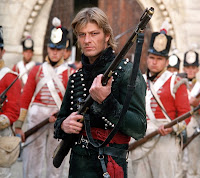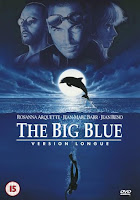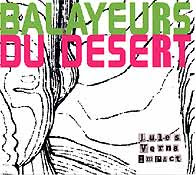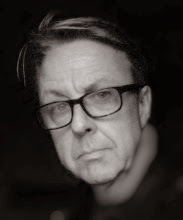
A woman walks into bar and asks the barman for a double entendre. So the barman gives her one. Yes it was cheeky humour like this that made the Carry On films one of the UK's more successful cinematic ventures.
Between 1958 and 1978, 29 official Carry On films were released, commencing with the innocent Carry on Sergeant and culminating in the decidely down-market Carry On Emmanuelle. Filmed on miniscule budgets that even Roger Corman would have found a bit tight, the Carry On's were produced and directed by Peter Rogers and Gerald Thomas respectively.
During the Carry On's 1960's heyday, which resulted in such classics as Carry On Cleo, Carry On Up the Khyber, Carry on Camping, Carry On Cowboy and Carry On Screa ming, many of the saucy seaside humour scripts were penned by Talbot Rothwell. As time went on a regular cast of British actors developed who routinely appeared in the films. These included Kenneth Williams, Sid James, Charles Hawtrey, Barbara Windsor, Jim Dale, Joan Sims, Leslie Phillips and Hattie Jacques, often working for the most appalling wages. During the filming of one Carry On , wheeler dealer Sid James reportedly sold a couple of the cars used in the movie to bolster his paltry pay!
ming, many of the saucy seaside humour scripts were penned by Talbot Rothwell. As time went on a regular cast of British actors developed who routinely appeared in the films. These included Kenneth Williams, Sid James, Charles Hawtrey, Barbara Windsor, Jim Dale, Joan Sims, Leslie Phillips and Hattie Jacques, often working for the most appalling wages. During the filming of one Carry On , wheeler dealer Sid James reportedly sold a couple of the cars used in the movie to bolster his paltry pay!
 ming, many of the saucy seaside humour scripts were penned by Talbot Rothwell. As time went on a regular cast of British actors developed who routinely appeared in the films. These included Kenneth Williams, Sid James, Charles Hawtrey, Barbara Windsor, Jim Dale, Joan Sims, Leslie Phillips and Hattie Jacques, often working for the most appalling wages. During the filming of one Carry On , wheeler dealer Sid James reportedly sold a couple of the cars used in the movie to bolster his paltry pay!
ming, many of the saucy seaside humour scripts were penned by Talbot Rothwell. As time went on a regular cast of British actors developed who routinely appeared in the films. These included Kenneth Williams, Sid James, Charles Hawtrey, Barbara Windsor, Jim Dale, Joan Sims, Leslie Phillips and Hattie Jacques, often working for the most appalling wages. During the filming of one Carry On , wheeler dealer Sid James reportedly sold a couple of the cars used in the movie to bolster his paltry pay!As the 1970's dawned rival film makers wanted a slice of the lucrative Carry On audience and produced their own bawdy romps like the i nexplicably popular Confessions of ..series, where the emphasis was on smut and glimpses of nudity. To meet the needs of seventies' audiences the Carry On's had to compete and became less cheeky and more smutty and one by one the ensemble cast members left the series.
nexplicably popular Confessions of ..series, where the emphasis was on smut and glimpses of nudity. To meet the needs of seventies' audiences the Carry On's had to compete and became less cheeky and more smutty and one by one the ensemble cast members left the series.
 nexplicably popular Confessions of ..series, where the emphasis was on smut and glimpses of nudity. To meet the needs of seventies' audiences the Carry On's had to compete and became less cheeky and more smutty and one by one the ensemble cast members left the series.
nexplicably popular Confessions of ..series, where the emphasis was on smut and glimpses of nudity. To meet the needs of seventies' audiences the Carry On's had to compete and became less cheeky and more smutty and one by one the ensemble cast members left the series.The Carry On's were never going to bother the Oscars committee, but they were immensely popular during their original release and remain so to this day, where cable channels will dedicate entire weekends to screening Carry On movies.
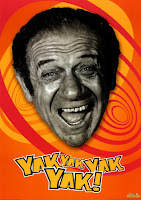
In addition to the dreadful double entendres, an important element of Carry On movies was the music, usually provided by Eric Rogers or Bruce Montgomery. Many of the early movie scores either employed a jazzy and brash big band or a military feel depending on the composer. As soon as you heard the Anglo Amalgamated Fanfare and the familiar Carry On music started up, you knew you were in for a cheeky hour and a half of slighty off colour fun and frolics
Seen today, there is nothing especially offensive about the Carry On's. There's no swearing, minimal nudity and only a few lapses in taste and decorum. The Carry On's were very much of their time and part of the bawdy Chaucererian humour that has been an intrinsic element of British comedy since the year dot. The mere utterance of "Saucy","Matron!", "Ding Dong!", the classic "Infamy, infamy, they've all got it infamy!" and Sid James' lascivious cackle are all part of the Carry On legacy. So next time some TV channel like Living or UK Gold screens a Carry on Weekend, cast aside any political correctness and curl up and indulge in a great British tradition.





